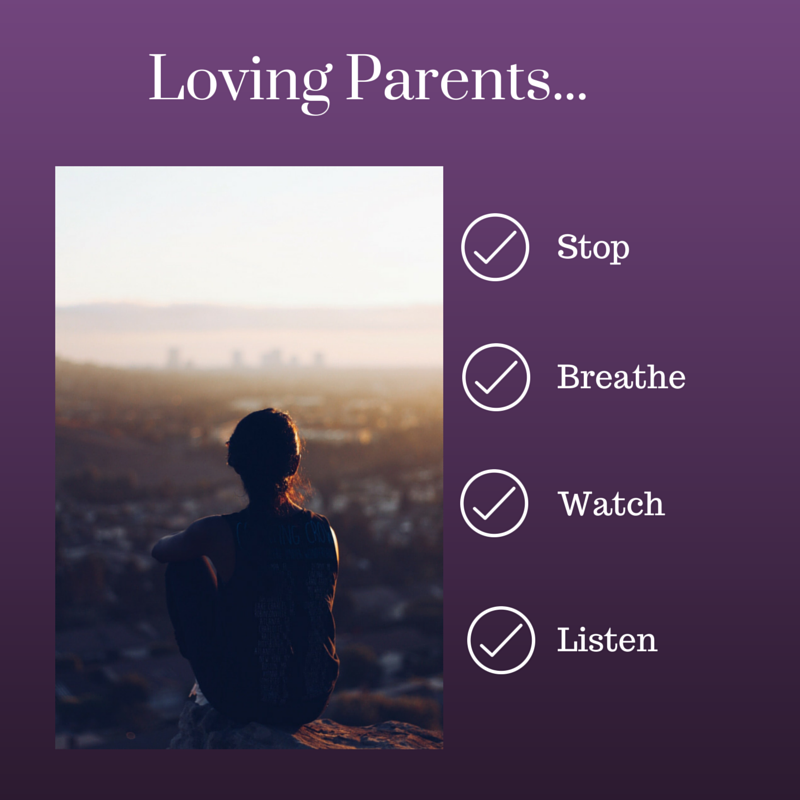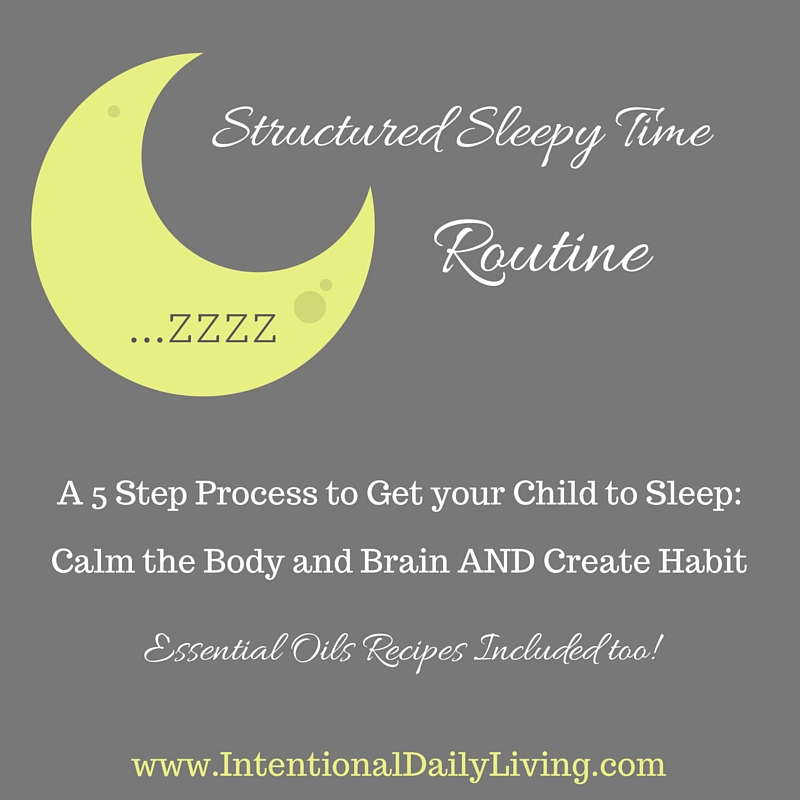 Authenticity is a core value of mine. What this means to me is that I strive to be true to myself. "True to yourself?! Sounds cliche, Who is this guy?" Well, let me explain... Who Is This Guy? I am a social worker, a therapist, a leader, a helper, a partner, a father to two dogs, a musician, a hiking and biking enthusiast, a baker, and a traveler. Before, during, and after I am any of these things I am Tucker. "Who the heck is Tucker?" Again, let me explain... Youth is often a time where authenticity comes naturally. We have not yet developed filters. The societal pressures have not yet wreaked havoc on our sense of self. When I think about who I am and how to remain authentic, I think back to my youth. Who Was Tucker Landry As a Child? I grew up surrounded by other families' children that my mother attempted to supervise. Growing up with constant playmates had its advantages and disadvantages. Being the first born child of my family with two younger siblings was hard as a kid. Throw 8-10 more children into the mix and little Tucker was often disgruntled by the lack of attention he received from his mother. This usually presented itself in some elaborate display of emotion that helped achieve the goal of getting Mom's attention, but ultimately led to little Tucker feeling embarrassed and weak for crying in front of his friends. Little Tucker's 7th Birthday Party I can still remember my 7th birthday party like it was yesterday. Piñata was where it all went downhill. I remember the excitement as I was blindfolded and ready to swing the bat. As I made contact with the piñata, I felt the hard cardboard shell give way, and heard the candy as it spilled to the ground, followed by screaming children diving for treats. As I struggled to remove my blindfold, I panicked, "What if there's no candy left for me?!" When my eyes were free to see again I looked at the ground to see my fear realized. The tears started flowing, the embarrassment building, ending with me running for cover, to my room, where I could hide from the world. "Why Did He Tell Us That Weird Story About His Childhood?" I tell that story because it reminds me of who I am as a person. I am sensitive. I am selfish. I am good at breaking piñatas. Whenever I sense that I am being inauthentic, I remind myself that I am Tucker. The same Tucker that lived up to the song, "It's My Party" and I'll cry if I want to. The same Tucker that wanted attention. The same Tucker that was embarrassed to show emotion. When I get emotionally in touch with this same Tucker I feel a deep sense connectedness with my identity. I can see little Tucker in my mind and bring up another memory that helps shape my identity. Then, in order to be authentic, I own those experiences and memories as part of my self and I share them with the world as I am doing here. Here I Am Authenticity is ownership of self. A colleague recently said to me, "We are all ourselves." Who are you at your core if you are really honest? Are you in touch with the parts of you that really make you, you. AND, are you accepting of yourself, your strengths your vulnerabilities and all? I am Tucker and I will continue to strive to be Tucker in all that I do. About the Author.... Tucker Landry, LCSW is a licensed social worker and a member of the Family Therapy Center team working with tweens, teens and adults. He is also currently working with Inova Hospital counseling individuals and families with chronic illnesses and conditions. If you would like an appointment with Tucker Landry, LCSW contact him directly here.
0 Comments
 I was recently invited to speak at a Second Saturday Workshop, a free informational session for individuals in the process of separation and divorce. Attendees are in various stages from contemplating separation and divorce to already having filed and anywhere in between. The workshop is licensed and hosted by DYSNYD (Divorce Your Spouse Not Your Dollars ©) and each workshop features a presentation by a Certified Financial Planner, a Family Law Attorney and a Mental Health Professional. I was so thankful for the opportunity to share resources and provide support and direction to individuals who are going through such a difficult emotional process. As I listened to the Certified Financial Planner and founder of DYSNYD, Bonnie Sewell, and the Family Law Attorney, Lindsay Jeffries Mohler of Atwill, Troxell & Leigh, P.C. of Leesburg share their knowledge and guidance, I began to feel my own stress levels begin to rise. Decided to Divorce? What About You? What About the Kids?As a licensed professional counselor and trained play therapist, I came to realize how I mostly deal with the emotional side of separation, divorce and adjustment to change in families. To hear the other professionals speak to the legal, financial and logistical processes was enlightening and overwhelming! I was even more inspired to provide guidance and resources to the participants on how important it is to take care of their own mental health and well-being as they endure the stressful, tumultuous and uncertain process of finding the "new normal." I spoke to the effects divorce and separation can have on children and some best practices to employ when it comes to how to tell the kids, how a child's age and developmental level impacts their understanding and reactions, signs of internalizing negative emotions, how stress impacts a child's development and ability to learn, and how to protect their children from the negative impacts of divorce- and yes, it is possible!! Your Child is Equal Parts You & Equal Parts Your Ex: Be MindfulThe most important thing to remember when talking to your children about divorce, or any change in the family for that matter, is to send the message that you (the adult) will handle the adult problems and they (the kids) will continue to be loved, cared for, attended to and nurtured as they always have been- by BOTH parents. The fights, arguments and ill feelings you may have towards your soon to be ex-spouse should not be witnessed or involve your children. As much as possible, keep the arguments to times when the kids are not present or, put the argument on hold until you can do it without them around. Your child feels that they are equal parts of mom and dad, so when you disparage your ex-spouse, you actually disparage your child. The long-term goal is for your child to have a healthy, positive relationship with each parent, so keep that in mind when dealing with the day to day decisions and interactions. Learning to Have "Recovery Conversations" With Your ChildWe are all human and it is impossible to keep everything hidden from our kids- we slip, we roll our eyes, we sigh, we say things we shouldn't in moments of anger and frustration. It happens, but when it does, you can have a conversation later on with your child about it and explain that in that moment, you were feeling angry or frustrated and that you are sorry that they had to see that. Model the behavior for your child that you would wish to see in them. Everyone has moments where they say or do something out of emotion, it's how you choose to handle that moment after the fact that will be remembered.
Do You Need Your Own Professional Support? For individuals who are in any stage of the separation or divorce process and feel you could benefit from having the support of a therapist to help you process these difficult changes and emotions, if you are looking for help in how to tell your children, how to co-parent and how to protect your children, or if you are concerned about changes you are seeing in your child's behavior or the effect of the divorce/separation on them, please reach out to me today for a free consultation. The experience of divorce is very difficult for families and couples, help is available to support you through each step of your journey. Believe in the possibility that life will be better and you will feel happy again. About the Author: Chelsey Brooks, LPC holds a Master's of Science in Professional School Counseling and is a Licensed Professional Counselor and a Licensed School Counselor. In addition, she has taken numerous graduate courses in counseling, development, and family systems. She is currently pursuing certification as a Registered Play Therapist (RPT) and in Theraplay, an attachment focused, play based practice of Play Therapy. Chelsey has completed extensive training in Play Therapy, Trauma and other clinically focused continuing education and is in private practice in Ashburn, Virginia.  Remember what you liked about your spouse when you first began to date? How you respected one another and went out of your way to understand his perspective; the excitement that percolated every time you learned something new and fresh about this person? Have you ever witnessed a teen and her mom laughing and sharing together and wished that you had that connection with your child? How did they get there? What do they know that you don’t know? Good, Strong Relationships are Built on Friendship. Friendship connotes safety, respect and support. When we love our friends, we want what is best for them and we yearn to be close and connected. Sadly enough, marriages and families often forget this very important component to a healthy and satisfying relationship. How Do You Communicate? All relationships have complaints, but not all complaints turn into criticisms. “I feel underappreciated and am tired of picking up all your stuff.” (I statement) “Please be more mindful.” (voicing a wish…how to make it right) …is a very different message than “You’re so messy and disorganized”(can you feel the finger being pointed at your loved one?) “I can’t take your chaos… this room is disgusting!“(who your spouse or child is as a person, at their core was just attacked and made to feel like a serious detriment. I can almost feel the shame that was just fertilized and watered) Complaint #1 voices a complaint with an “I statement” and a wish attached, While message #2 attacks the person and makes them feel unworthy of you. What we Say & How we Say it Can Fertilize or Scorch a Relationship: |
|||||||
| Click Here to Print and Fill In Your Child's Own Sleepy Time Routine. Hang it Up Tonight! | |
| File Size: | 29 kb |
| File Type: | |
Therapeutic Grade Essential Oils

Running awful scenarios through my head is something I do well. But here’s the thing. My child’s brain becomes impacted by his environment. If my husband and I do not come up with the cause and the solution, he suffers, and the consequences can be rather dire.
In the moment at 3:30 in the morning, I decided to get my diffuser and essential oils. At first I wasn’t sure what to try. My son did not have night terrors (Juniper Berry), he was not experiencing multi-layered anxiety (Grounding Blend) nor was it even basic anxiety (Wild Orange or Lavender). We needed to stop the chatter in his head so he could stop the babbling coming out of his mouth.
I plugged in the diffuser and put in 2 drops of Cedarwood and 1 drop of Bergamot; the perfect recipe to stop internal chatter. As I turned on the diffuser, I asked my son to tell me when he could smell it. “Ok, mom” was the last thing I heard.
It would be nice if my story ended here. A happy ending where oils saved the day and stopped the madness. Parents of special needs children know it is rarely that simple. The next morning I weighed out the possibilities with my husband. Red food dye, gluten, chlorine, Lyme, the list of chemicals and substances and their reactions in his body can be endless. We decided. Our best line of defense is to stop- take a deep breath- watch and listen.
How difficult this can be. To give up a bit of control to sit back and wait. Wow. Not easy. Having a child with a chronic illness means my mommy ears and spidey senses are always on high alert. Looking, watching, piecing symptoms together with possible meanings and outcomes. The part I think I need to remind myself is to stop and breathe.
I feel blessed to have a husband who is such a good team player. As difficult as life can sometimes get, it is nice to know that when the road twists and turns and when it becomes impossible to see the end, I find peace in knowing that I do not have to walk it alone. Stop, breathe,watch and listen. Slowing down enough to breathe...great advice if I can take it.

Systems that focus on praise alone will miss the opportunity of teaching a child self discipline and natural consequences. Reflectively, systems that focus on punishing negative behavior or discipline alone miss the chance to build up the child and help him strive for positive behavior. Avoiding punishment is not the same as an internalized locus of control. Click here to read part one of this blog that focuses on developing a level system for disruptive negative behaviors.
I Just Wish my Child Would...
All parents know that feeling. It is the exact moment when you look at your partner and say, "When did things get so out of control? I never thought I'd raise a child who..." In that moment you know...it is time for a change and it needs to happen NOW.
Every time my husband and I decide to do a behavior shaping plan we inevitably ask each other why we waited so long to do it. Shaping behavior really works, if there is already consistency with a good solid level system that tackles negative behavior AND if love and respect for the children are maintained at all times too.
The Art of Shaping Behavior
Although you may get the urge to start all over with your children and overhaul your entire parenting plan, it is only recommended to pick one behavior at a time to shape and keep it POSITIVE!
Examples:
Say the kids are not listening and argue too much. The behavior to aim for is not "stop sassing" a better goal might sound like, "follow directions the first time asked". Maybe you are tired of cleaning up after the children. A goal might be "find ways to be helpful. Each helpful task that you initiate earns you a link."
What is a Link & How Can it Change my Child's Behavior?
Remember those links you made out of construction paper as a child? I have memories of cutting colorful paper into strips, creating a link, connecting the links together and then wrapping them around my Christmas tree. Links are great because they are so visual. These are the same links that work for shaping behavior.
How Does it Work?
After you choose the desired behavior AND measurable one step goal, look for times your child is doing it and reward him with a link. Have your child be on the look out for these behaviors too. Having your child point out that he did the goal is a GREAT way for him to scan his environment and look for ways to behave.
Begin to hang these links from a low 8' ceiling. Link after link of good behavior begins to make it's way to the floor. When the entire chain touches the ground (make it happen in less than a week), something wonderful happens. Make sure you determine what this will be beforehand. It could be an outing to the neighborhood ice cream shop, a small toy or extra privilege. Make it enticing, but not expensive.
"What if my Child Does NOT Do it? Do I Take Away a Link?"
Nope. Never take away a link that has already been earned. This is why it is important to have a level system already in place AND to use your own creativity and parent coaching skills. Misbehavior gets the time out, etc, but positive behavior connects to links.
Example:
This approach is collaborative and takes you and your child working together to make this work. Let's say your child's link goal is to follow directions the first time time asked. It is now bedtime and you told her to brush her teeth. She whines about wanting to watch more tv and does not go upstairs. You remind her a second time with a calm, sincere, "Stink. You could have earned a link. Maybe you will remember when it is time to put on your jammies."
Working together is key here. If all of your re-directing tools are punitively based, and you do not try to cheer her on, like a parent coach, chances are the plan will not work. It takes your child, but it also takes you wanting her to succeed and do a good job. Reminding your child that she can earn more links another time will help her not give up and sit in failure.
Nobody Likes to Fail...Not You & Not Your Child
When children reach the failure stage and feel like a really bad kid, they usually quit. If your child has quit, he will probably sabotage the good things, rip down the links, swear and say means things when you try to reward. Failure is tough to fight against. This is why I say NEVER pull down a link once it is earned. Do not take away stars from a star chart. These things they did well...these things do not need to be discounted. Finding a way to creativity get your child to want to behave is key. Making them feel like you are a team and that you WANT them to succeed is huge.
Remember: Disciplining a Child is Not Easy!
Have a special needs child? Click here to read a blog that just might speak to you.

What is it like to be a woman? What type of woman do I want my daughter to become? I ask myself these questions and find myself growing within the process too.
Helping a young woman find her feminine balance is not an easy task. When helping a teen in my office navigate this path, I take the job very seriously. What responsibility we have, those of us who offer guidance to girls of all ages. How much of our guidance comes from our own pasts? Our own experiences.
Helping Teen Girls Evolve Their Core Identity
How can a girl know who she is in her relationships if she is unsure of whom she truly is? One of my favorite things to do in the therapy office is to help middle and high school girls identify and evolve their authentic selves; to piece by piece develop that core identity. I can’t tell you how many times I have received a phone call from a parent looking for a particularly labeled therapy to stop their daughter from cutting or thinking about suicide. SO many times, I find myself coming back to helping these girls love themselves and become in touch with their core identity
When girls practice being a woman, they make conscious decisions to bridge the lives of today with their lives of tomorrow. Children learn that babysitting is practicing to be a mother and diligence with chores is practicing to be a reliable employee and loving a sibling is practice for loving a spouse. None of it matters if our girls are not well rooted in who they are.
Our Responsibility to Model What it is Like to be an Authentic Woman
Finding the Portal into Our Girls' Feminine Worlds
I find myself brainstorming with parents of teens often to help them identify these doorways. Some children are more open in the car, others become vulnerable and connect when alone with the parent at a restaurant. I remember one mom of a distant teen found value in climbing into bed with her daughter to have night chats in the dark.
Look for the portal into your child’s world. Although it is often camouflaged with brush and other prickly bushes, chances are it does exist. Girls do not learn to navigate life on their own, but they will find information both right, wrong, helpful and detrimental. It is our job as parents and the helping professionals in their lives to guide them and teach them how to be authentic and women they can respect and love.
Four Important Lessons for Divorcing Parents to Keep in Mind By: Gabrielle Anderson, LMFT
10/11/2014
Divorcing Nudge #1: Protect Your Sweeties From the Loyalty Guilt Trap
Divorcing Nudge #2: Teach Your Children to Protect Their Eyes and Ears
Divorcing Nudge #3: Everything You Do with Your Attorney Costs Something
Divorcing Nudge #4: Purposefully Create 2 Whole Homes for Your Children
Do your best to make the second home look warm and inviting too. Often home #2 is an apartment or smaller house. Smaller spaces can still feel warm and family friendly. Maybe allow older children to help you pick out bedroom themes. Making mindful decisions about creating a second home for your children can help you decide what routines and structures to put in place. Home at mom's and home at dad's is the key. When children feel like visitors, it is hard for them to relax and renew.
When to Seek Professional Support During a Divorce
Gabrielle Anderson is the Director and a Therapist at the Family Therapy Center of Northern Virginia, llc
She and the other team members can be contacted directly from the Center's Meet the Team page.
My 6 year-old daughter had developed persistent whining tendencies. Whenever she wanted something, or we made a simple request of her, she whined with dramatic refusals, stomping, crying, etc. My typical parental responses weren’t helping; in fact, they were playing a big role in the problem. On a daily basis you could hear in our house, “Stop using that voice. Please stop whining. Stop Complaining!!, Where are you manners?!!” Eventually, I was yelling at her like a hammer flailing without a plan.
Realizing I had created a whiny monster, I decided to give the lesson from The Yale Parenting Center seminar a serious try. For two weeks I committed to not responding when presented with whining or complaining. I explained the plan and asked my husband and other daughter (two years older) to get on board with looking away and ignoring the whining.
My initial reaction to this practice of ignoring was something I had heard many times from parents in my practice. I felt like the silence condoned the behavior. I feared both kids would interpret my lack of reaction as approval. I had to trust that they would “get it” and interpret my walking away as disapproval, or a mini-consequence.
I knew her bad behavior was likely to increase at first as she tried harder to get my attention with the old tactics. So while I grasped the long view, it felt strange not to respond to her cries of need and distress. It felt weird that I wasn't doing anything. Then I started to feel a little mean, withholding my attention like that. I reminded myself that emotional regulation skills were critical to her development. I could try hard to control my emotions if it would help her learn to control hers.
Thankfully the second piece of the plan came a little more naturally. In positive parenting, which kids with ADHD and related conditions respond especially well to, we're taught to think of the “positive opposite” of the behavior we don't want. Then, when we see progress toward what we do what, we respond with attention and specific praise. Parents often forget to provide attention and specific praise to the behaviors they like, such as time kids play cooperatively together. It's more common to pay attention when the arguing starts, when something's not working.
With a little practice, when you identify the behaviors that need to be developed, parents can quickly become adept at responding with less frustration. Consider what children need to learn when they exhibit unwanted behaviors:
o Whining ⇒ use a normal tone of voice when making a request
o Excessively complaining ⇒ follow the routine we talked about, or understand sometimes plans change
o Impulsivity ⇒ pause and breathe before speaking / acting
o Too silly ⇒ please talk in a thoughtful way
o Too bossy / argumentative with sibling ⇒ take turns deciding, speak kindly to one another (like you would
to a friend)
o Insensitivity ⇒ think about the other person's needs/feelings
o Listening poorly ⇒ look at me and stop what you're doing when I say I need to tell you something
o Sassy toward parents ⇒ Show cooperative actions and words, use a calm tone
o Quick to anger ⇒ Learn to use calming strategies when frustrated
With your primary goal of building one skill at a time, you can begin to use a magic feather – attending enthusiastically to all the small areas where you see progress. As you see pieces of the behavior you want, you can wave the wand of power that is your attention with your eye contact, a smile, a warm touch, a point on a whiteboard, a ticket in a jar to be used to earn privileges, or a comment like “wow, I am really impressed with how you got your homework supplies out when I asked.” When met with setbacks or sassiness that require your response, be sure to do so in a matter-of-fact, routine way, as if you couldn't be more bored.
Attending and ignoring techniques can be tougher in practice than we expect because they sometimes go against our natural parenting tendencies. Some parents may find specific praising of progress to feel unnatural, like coddling. Other parents may feel uncomfortable being unresponsive, especially to a very persistent child.
Some kids, like my daughter, want and need lots of our attention. If parents are easily engaged in negative emotional reactions, the child develops a habit of securing attention in this way. Research studies and my own experience lead me to confidently recommend the two-week challenge if you are experiencing behaviors in the annoying category. Your attention is light and easy to wave once you get the hang of it. It is indeed your most powerful parenting tool.
Author
These blog entries are written by our very own clinicians. When inspiration hits, another entry will be logged.
Get Blog Updates
Archives
May 2021
October 2018
November 2017
June 2017
March 2017
January 2017
December 2016
November 2016
November 2015
September 2015
August 2015
July 2015
June 2015
May 2015
April 2015
November 2014
October 2014
September 2014
July 2014
June 2014
May 2014
April 2014
February 2014
January 2014
December 2013
November 2013
Categories
All
About Or For Children
Author: Chelsey Brooks
Author: Gabrielle Anderson
Author: Katie Wells
Author: Tracey Powell
Author: Tucker Landry
Author: Valerie Tunks
Divorce
Emotional Balance & Wellbeing
Health & Nutrition
Lyme Or PANDAS
Parenting Topics
Play/Art Therapy Examples
Relationships
Trauma

 RSS Feed
RSS Feed